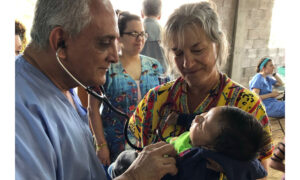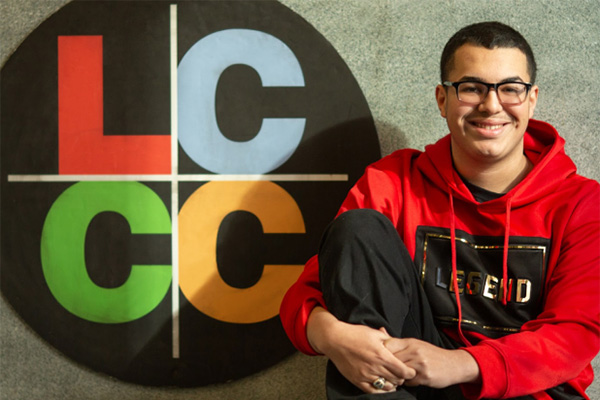Practical Nursing Students Give Back with Used Textbook Initiative

Health care professionals solve problems and care for people every single day. So when the students studying to become licensed practical nurses at Lehigh Carbon Community College were presented with the problem of what to do with old textbooks, they came up with a practical solution that also benefits others – donation.
Since 2015, practical nursing students from the Tamaqua, Allentown and Schnecksville campuses have donated more than 12,000 health care science textbooks to medical professionals at clinics in developing countries.
According to the program’s faculty facilitators, Karen Clark and Karen Wotring, medical textbooks are in a constant state of turnover.
“For a lot of our accreditation, you only have five years, and then a book is considered to be outdated yet is still valuable,” Wotring says.
Students collect the books, which have been donated by the nursing and health care faculty, and give them to a mission team from Stroudsburg Berean Bible Fellowship, who then distribute the books across the globe. Books have been donated to clinics in such diverse countries as China, Costa Rica, El Salvador, Guyana, Haiti, Togo and Ukraine. Had the books not been donated, they would be sitting in a landfill rather than providing welcome reference on the bookshelf of a medical professional.
The impact these books have on clinics in these areas cannot be overstated.
 Many of the clinics are located in extremely remote areas. One such clinic near the Arenal Volcano, just south of Nicaragua, operates with no internet access. And as faculty facilitator Karen Wotring notes, “It’s really the only medical care for these areas.” From basic check-ups to prenatal care and everything in between, these clinics are the main source of health care for the populations they serve. Having access to the knowledge base present in these textbooks can be life-saving.
Many of the clinics are located in extremely remote areas. One such clinic near the Arenal Volcano, just south of Nicaragua, operates with no internet access. And as faculty facilitator Karen Wotring notes, “It’s really the only medical care for these areas.” From basic check-ups to prenatal care and everything in between, these clinics are the main source of health care for the populations they serve. Having access to the knowledge base present in these textbooks can be life-saving.
“In Africa, they were giving too much fluid in injections, causing abscesses, and were able to show that using the books,” Wotring says.
But it’s not just the doctors and nurses at the clinics who are benefiting from this initiative.
LCCC nursing students are gaining a greater understanding of not just how medicine is practiced in other countries compared with the United States, but just how stark the contrast between resources can be. This difference was highlighted when students realized a need to donate empty pill bottles.
“Nurses [in these areas] had nothing to put their medications in, not even plastic bags. Some things that we don’t see as useful can be very useful to them.” Clark says, all of which helps underscore how a simple act of kindness can truly change lives.
For some in the practical nursing program, this initiative hits close to home.
“Some of our students are from the countries where the books are donated. There are students who are donating their textbooks back to help clinics in the country they are originally from,” Wotring says and it’s that desire to give back that motivates students within the program.
To work as a health care professional is to put the needs of others before one’s own. Students in the practical nursing program are embodying that philosophy by demonstrating their concern for not only patients, but their fellow health care professionals.
Clark and Wotring agree that it is good to feel connected as a whole and help nursing students around the world.

